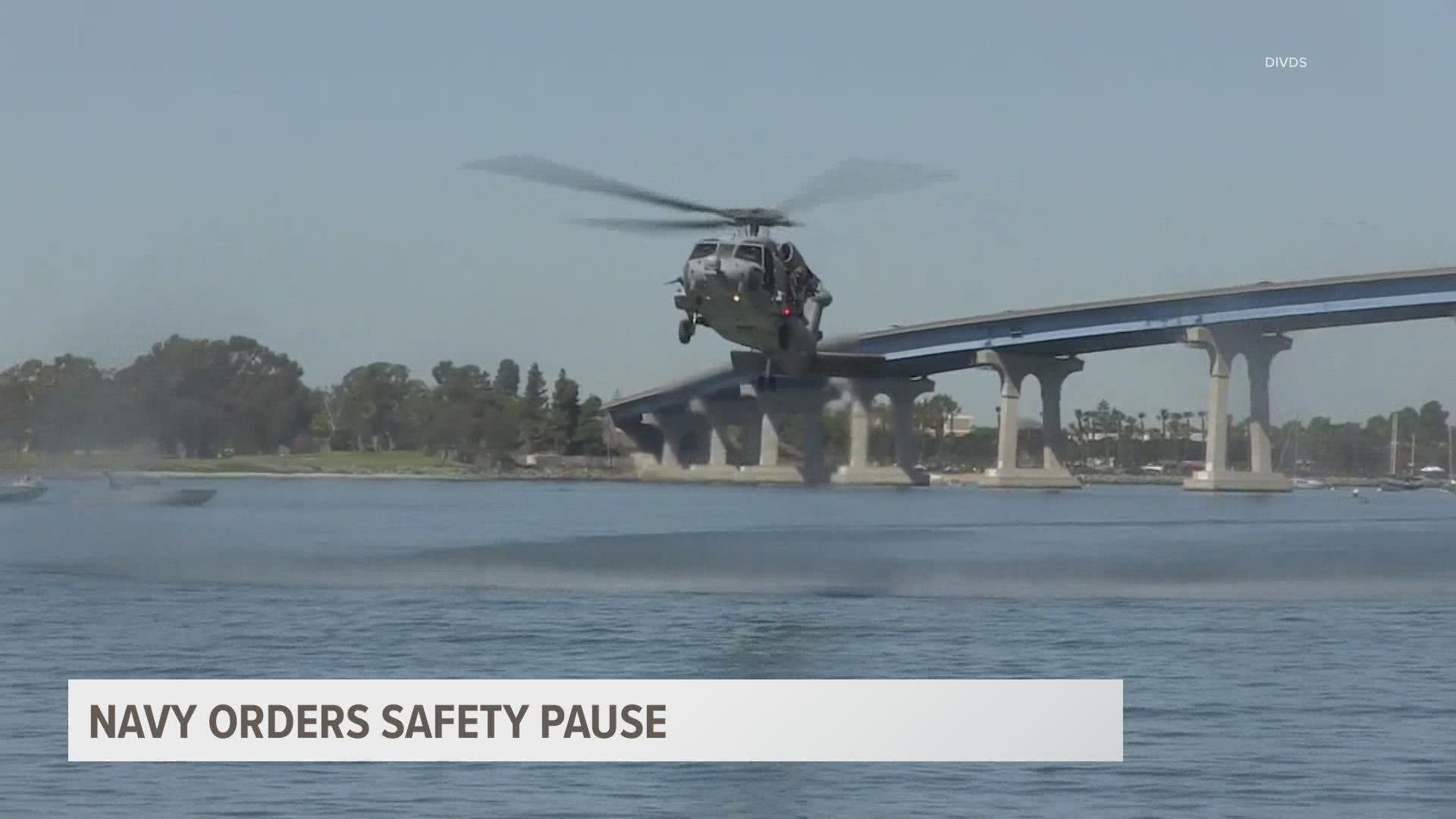NORFOLK, Va. — Following a string of mishaps, the Navy took a one-day "safety pause" Monday for all aviation units.
The move comes after three Navy and Marine Corps aircraft crashes in the past 10 days, two of which were fatal.
As a result of those incidents, the commander of Naval Air Forces ordered all non-deployed Navy and Marine Corps aviation units to conduct a safety pause today, "to review risk-management practices and conduct training on threat and error-management processes."
Public Affairs Officer for Naval Air Force Atlantic Commander Rob Myers said, "The overall objective in a safety pause is to ensure that Naval aviation is maintaining the highest levels of safety and force readiness. Our people are our most precious resource. And their safety along with that of the local community remains one of our top priorities."
Myers went on to say, "All squadron leadership will take a holistic review of the ground and maintenance operations, flight planning, execution and risk mitigation processes to ensure Naval aviation is both a safe and lethal force."
Last week, five Marines were killed when their MV-22B Osprey crashed in a remote training area roughly 115 miles east of San Diego.
The next day, a Navy MH-60S Seahawk crashed near El Centro, California, injuring one of four crew members.
On June 3, an F/A-18E Super Hornet crashed during training in California, killing the pilot.
Locally, back in March, an E-2D crashed near Chincoteague, killing Lt. Hyrum Hanlon.
According to the bipartisan National Commission on Military Aviation Safety, the U.S. military experienced more than 6,000 aviation mishaps from 2013 to 2019, killing 224 pilots and aircrew members.
Those accidents destroyed 186 aircraft and cost more than $11.6 billion.
Former Naval Air Station Oceana Commanding Officer Bob Geis said taking a pause to focus on safety is a smart idea.
"This is a very good step the Navy is taking," said Geis, a retired captain and Naval Flight Officer. "Naval aviation is a learning organism. Learning from past instances, because, Lord knows, all of our procedures are written in blood. And they are written because something happened in the past they don't want to have repeated. And I'm confident this is a proactive step to ensure that the Navy is always ready when the nation calls it."
As for squadrons that are currently deployed, the Navy says they will conduct the safety pause "at the earliest possible opportunity."

